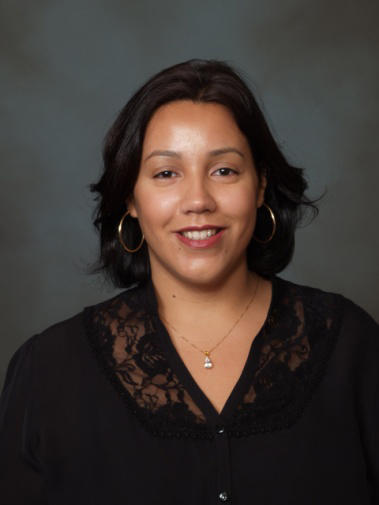Grantee Spotlight: Elisa Rodriguez, Ph.D., M.S. - Community-based Education and Outreach Can Increase Biospecimen Donations among Hispanics and African Americans
, by CRCHD Staff
The interest in genomic research to support the development of targeted medical therapies that are more likely to be effective for a particular person has garnered increased attention in cancer research, and increasingly in the area of cancer disparities research. As a result, investigators are interested in collecting biospecimens for genomic studies from various population groups. However, biospecimens from diverse racial/ethnic populations are still underrepresented in biobanks.
At Buffalo’s Roswell Park Cancer Institute, CRCHD grantee and sociobehavioral scientist Elisa M. Rodriguez, Ph.D., M.S., is collaborating with other cancer scientists and community members to test the feasibility of community-based participatory research (CBPR) approaches to engaging Hispanics, African Americans, and the medically underserved in the Buffalo, NY area in biospecimen donation for cancer research.
Rodriguez and her team understood that they would first have to bring awareness to the community regarding this novel form of cancer research participation as well as dispel existing myths and misperceptions about cancer genomic research.
Rodriguez, who is an Assistant Professor of Oncology in the Department of Cancer Prevention & Population Sciences and the Director of the Community Engagement Resource for the Office of Cancer Health Disparities Research and Center for Personalized Medicine, conducted her research in two phases. In Phase 1, entitled “Hoy y Mañana (Today and Tomorrow),” the goal was to educate the Hispanic community about the need for biospecimen research and to collect saliva samples. In Phase 2, the goal was to expand education and outreach to include African Americans, Hispanics, and other underserved members of the Buffalo community as well as offer the opportunity to donate blood to the biobank at the cancer center. A mobile research van was provided by the Roswell Park Cancer Institute to obtain and process the biospecimen samples.
This community-based study, funded under an NCI/CRCHD Community Networks Program Centers U54 grant, was a real “aha” moment for the team, Rodriguez says. “Prior to the pilot project, participation was lower among minority community members because they weren’t aware or educated, about how they’re able to contribute to life-saving research through their biospecimen donations,” said Rodriguez. Language also proved to be a barrier to biospecimen donation. But once the community was informed and educated, they were interested and willing to participate. Rodriguez found that as her studies progressed, participants were motivated to donate with the hope of benefiting a member of their community or family member with cancer, or to prevent cancer in future generations. In the end, approximately 45% of study participants donated biospecimens.
Rodriguez’s approach focused on engaging the Hispanic and African American members of the community, as well as community leaders, such as church pastors, civic leaders, and local clinicians, ensuring that all key stakeholders from the community were represented. The strategies that Rodriguez and her team used to educate the community and encourage biospecimen donations included presenting and disseminating educational materials, both in English and Spanish, that provided relevant examples of local research efforts which incorporated the use of biospecimens.
Rodriguez is of Puerto Rican descent and was born and raised in Buffalo, NY. She obtained her Ph.D. in 2008 from the Johns Hopkins Bloomberg School of Public Health in Baltimore and her M.S.in 2003 from the University at Buffalo/Roswell Park Cancer Institute Division. She has received numerous awards, including the Minority Predoctoral Fellowship Award and Carol Eliasberg Martin Scholarship in Cancer Prevention from Johns Hopkins University, both in 2003. More recently, she was honored by the Mayor of Buffalo as part of the city’s 2013 Women’s History Month celebrations for her contributions in the area of science.
